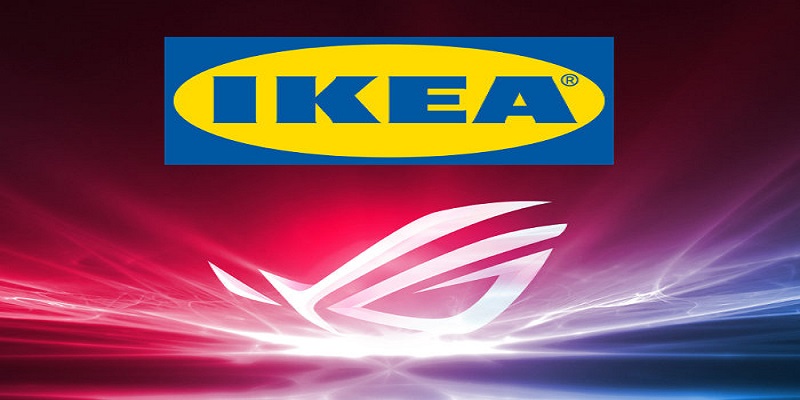
Ikea and Asus’ Republic of Gamers (ROG) brand has partnered to develop a new range of gaming furniture and accessories.
“Republic of Gamers (ROG) is one of the leading brands in gaming industry, designing high quality, innovative hardware and gear for gamers. By teaming up with ROG, IKEA wants to combine home furnishing knowledge with ROG’s expertise in creating exceptional gaming experience. Together, we set out to help the many gamers (and their families) welcome gaming home through developing the new range of affordable and ergonomic gaming furniture & accessories, designed to increase performance while also blend in beautifully to homes,” reads the official statement of Ikea.
The new gaming range is developed in IKEA Product Development Centre in China, Shanghai. As a starting point for the product development process, IKEA and ROG designers and engineers had several workshops together with professional gamers and gaming lovers in Shanghai to explore home furnishing needs of gamers and identify the list of functions needed to secure a high quality gaming experience at home.
Workspace Global Business Leader Ewa Rychert says: “There are a lot of existing conventions about gaming which are often stereotypical or negative, for example, all the games are built on violence, gaming is asocial and it is predominantly a men’s activity. In fact, figures show that gaming is among the most truly cross-demographic activities, and it can improve an individual’s mental health and general well-being. It’s a source of relaxation, independence, fun; through gaming, people develop skills within problem solving, teamwork and communication. Playing games also provides a new way of connecting with others which has become even more important recently to feel connected remotely. We hope that the new gaming range will help to embrace and enable the benefits of gaming in life at home. ”
There’s no detail on what products are going to be part of the “new home gaming ecosystem” that both companies aim to create.The furniture line is set to roll out in China in February 2021, and will then likely gradually become available in other regions across the world.
